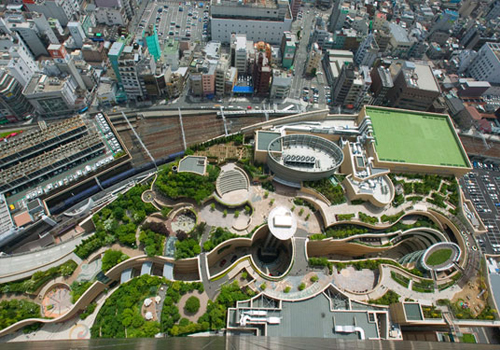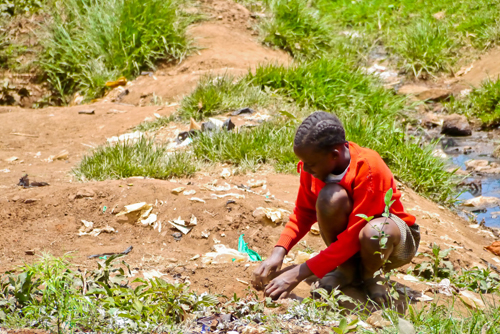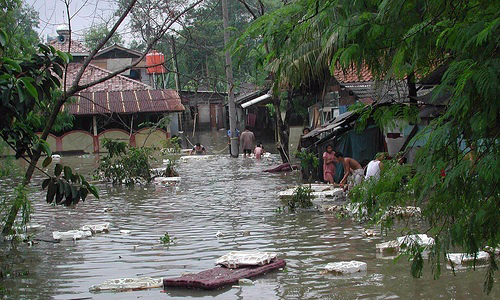Climate change often leads to natural disasters like floods, droughts, and heat waves, all of which are especially destructive to the poor. In cities around the world, the urban poor are threatened because they do not have sufficient resources to survive unpredictable natural disasters. Learn how cities are mitigating the risk of environmental degradation and coming up with solutions to help the urban poor in Rio de Janeiro, Nairobi, Mumbai, Mexico City, and Jakarta. Then join the discussion on URB.im, the global network for just and inclusive cities.
 A leading city in environmental sustainability, Rio de Janeiro was the first Latin American city to develop a Greenhouse Gas Emission Inventory. It also produced one of the first municipal climate change and sustainable development policies. Rio recently built a new solid waste treatment center, and expanded the collection of household waste. It is also promoting a vast expansion of its metro system and its integration with bus routes. Known as Brazil's bicycle capital, Rio also has 235 kilometers of bike tracks, which are being improved and integrated with other forms of transportation.
A leading city in environmental sustainability, Rio de Janeiro was the first Latin American city to develop a Greenhouse Gas Emission Inventory. It also produced one of the first municipal climate change and sustainable development policies. Rio recently built a new solid waste treatment center, and expanded the collection of household waste. It is also promoting a vast expansion of its metro system and its integration with bus routes. Known as Brazil's bicycle capital, Rio also has 235 kilometers of bike tracks, which are being improved and integrated with other forms of transportation.
The Mexico City government has implemented the Climate Action Program to coordinate public actors' work in reducing environmental risk, limiting socio-economic issues arising from climate change, and reducing emissions and greenhouse gasses. Initiatives include the expansion and improvement of public transportation, efficient use of water and electricity, the use of solar and renewable energy, the recycling of solid waste, and soil conservation. However, these strategies must also be accompanied by public awareness campaigns and educational activities for communities to identify practices that contribute to environmental degradation.
 In the absence of government-lead environmental sustainability initiatives in Nairobi, an organization has spearheaded a tree-planting program in Kibera, an informal settlement that used to be a forest but now is largely deforested. The program works with local student volunteers to plant 700 trees; the trees prevent soil erosion which, in an informal settlement where dwellings have been built without proper foundations, may be the only thing preventing a landslide from taking out a house during the rainy season. The program also runs public awareness campaigns to educate members of the community on environmental issues and sustainable solutions.
In the absence of government-lead environmental sustainability initiatives in Nairobi, an organization has spearheaded a tree-planting program in Kibera, an informal settlement that used to be a forest but now is largely deforested. The program works with local student volunteers to plant 700 trees; the trees prevent soil erosion which, in an informal settlement where dwellings have been built without proper foundations, may be the only thing preventing a landslide from taking out a house during the rainy season. The program also runs public awareness campaigns to educate members of the community on environmental issues and sustainable solutions.
Frequent heat waves and dramatic floods are severely damaging to Mumbai, a coastal city. Environmental degradation is further exacerbated by population growth and ever-increasing urban development. A recent report proposed several solutions to reduce the economic impact of climate change in Mumbai, including building effective drainage systems, reducing salt content of new building materials, protection plans for mangroves, and anti-erosion measures at beaches. The transformation of Maharashtra Nature Park from dumping ground to green public space is a promising example of enhancing the urban ecosystem, but many more changes are urgently needed.
 Heavy rainstorms, floods, and rising sea levels threaten Jakarta, especially vulnerable since 40% of the city is below sea level. The Global Facility for Disaster Reduction and Recovery working group is a consortium of institutional donors and partner countries working with Jakarta's citizens to increase their resilience to climate change. The group established a model that empowers citizens to play an active role in addressing climate change, including through working groups, vulnerability assessments, capacity building, training, and public awareness.
Heavy rainstorms, floods, and rising sea levels threaten Jakarta, especially vulnerable since 40% of the city is below sea level. The Global Facility for Disaster Reduction and Recovery working group is a consortium of institutional donors and partner countries working with Jakarta's citizens to increase their resilience to climate change. The group established a model that empowers citizens to play an active role in addressing climate change, including through working groups, vulnerability assessments, capacity building, training, and public awareness.
To limit environmental vulnerabilities and protect the urban poor, it is crucial that municipal governments partner with local communities. Read more about how cities can mitigate the effect of climate change, and join the conversation on URB.im, the community for just and inclusive cities.